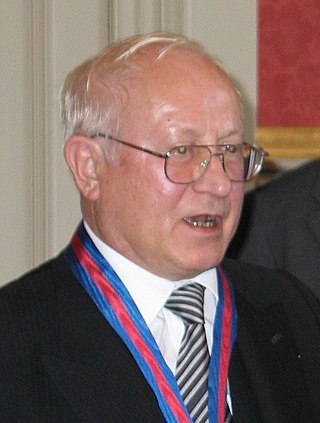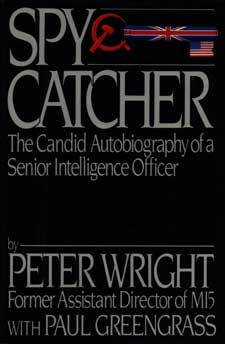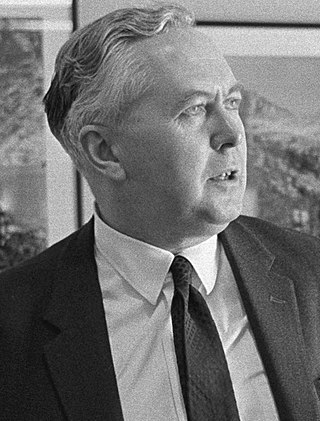Espionage, spying, or intelligence gathering is the act of obtaining secret or confidential information (intelligence). A person who commits espionage is called an espionage agent or spy. Any individual or spy ring, in the service of a government, company, criminal organization, or independent operation, can commit espionage. The practice is clandestine, as it is by definition unwelcome. In some circumstances, it may be a legal tool of law enforcement and in others, it may be illegal and punishable by law.

The Security Service, also known as MI5, is the United Kingdom's domestic counter-intelligence and security agency and is part of its intelligence machinery alongside the Secret Intelligence Service (MI6), Government Communications Headquarters (GCHQ), and Defence Intelligence (DI). MI5 is directed by the Joint Intelligence Committee (JIC), and the service is bound by the Security Service Act 1989. The service is directed to protect British parliamentary democracy and economic interests and to counter terrorism and espionage within the United Kingdom (UK).

Cold War espionage describes the intelligence gathering activities during the Cold War between the Western allies and the Eastern Bloc. Both relied on a wide variety of military and civilian agencies in this pursuit.

The Cambridge Five was a ring of spies in the United Kingdom that passed information to the Soviet Union during the Second World War and the Cold War and was active from the 1930s until at least the early 1950s. None of the known members were ever prosecuted for spying. The number and membership of the ring emerged slowly, from the 1950s onwards.

Oleg Antonovich Gordievsky, CMG is a former colonel of the KGB who became KGB resident-designate (rezident) and bureau chief in London. He was a double agent, providing information to the British Secret Intelligence Service (MI6) from 1974 to 1985. After being recalled to Moscow under suspicion, he was exfiltrated from the Soviet Union in July 1985 under a plan code-named Operation Pimlico. The Soviet Union subsequently sentenced him to death in absentia.
A sleeper agent is a spy or operative who is placed in a target country or organization, not to undertake an immediate mission, but instead to act as a potential asset on short notice if activated. Even if not activated, the "sleeper agent" is still an asset and can still play an active role in sedition, espionage, or possibly treason by virtue of agreeing to act if activated. A team of sleeper agents may be referred to as a sleeper cell. A sleeper cell or agent may possibly be working with others in a clandestine cell system.
Rupert William Simon Allason is a British former Conservative Party politician and author. He was the Member of Parliament (MP) for Torbay in Devon, from 1987 to 1997. He writes books and articles on the subject of espionage under the pen name Nigel West.

Spycatcher: The Candid Autobiography of a Senior Intelligence Officer (1987) is a memoir written by Peter Wright, former MI5 officer and Assistant Director, and co-author Paul Greengrass. He drew on his own experiences and research into the history of the British intelligence community. Published first in Australia, the book was banned in England due to its allegations about government policy and incidents. These efforts ensured the book's notoriety, and it earned considerable profit for Wright.

Oleg Vladimirovich Penkovsky, codenamed Hero and Yoga was a Soviet military intelligence (GRU) colonel during the late 1950s and early 1960s. Penkovsky informed the United States and the United Kingdom about Soviet military secrets, including the appearance and footprint of Soviet intermediate-range ballistic missile installations and the weakness of the Soviet intercontinental ballistic missile program. This information was decisive in allowing the US to recognize that the Soviets were placing missiles in Cuba before most of them were operational. It also gave US President John F. Kennedy, during the Cuban Missile Crisis that followed, valuable information about Soviet weakness that allowed him to face down Soviet leader Nikita Khrushchev and resolve the crisis without a nuclear war.
Peter Maurice Wright CBE was a principal scientific officer for MI5, the British counter-intelligence agency. His book Spycatcher, written with Paul Greengrass, became an international bestseller with sales of over two million copies. Spycatcher was part memoir, part exposé detailing what Wright claimed were serious institutional failures he investigated within MI5. Wright is said to have been influenced in his counterespionage activity by James Jesus Angleton, counter-intelligence chief of the US Central Intelligence Agency (CIA) from 1954 to 1975.

Sir Roger Henry Hollis was a British intelligence officer who served with MI5 from 1938 to 1965. He was Director General of MI5 from 1956 to 1965.
Anatoliy Mikhaylovich Golitsyn CBE was a Soviet KGB defector and author of two books about the long-term deception strategy of the KGB leadership. He was born in Pyriatyn, USSR. He provided "a wide range of intelligence to the CIA on the operations of most of the 'Lines' (departments) at the Helsinki and other residencies, as well as KGB methods of recruiting and running agents." He became an American citizen by 1984.
Michael John Bettaney, also known as Michael Malkin, was a British intelligence officer who worked in the counter-espionage branch of the Security Service often known as MI5.

Christopher Maurice Andrew, is an Emeritus Professor of Modern and Contemporary History at the University of Cambridge with an interest in international relations and in particular the history of intelligence services.

Konon Trofimovich Molody was a Soviet intelligence officer, known in the West as Gordon Arnold Lonsdale. Posing as a Canadian businessman during the Cold War, he was a non-official (illegal) KGB intelligence agent and the mastermind of the Portland Spy Ring, which operated in Britain from the late 1950s until 1961.

Since the mid-1970s, a variety of conspiracy theories have emerged regarding British Labour Prime Minister Harold Wilson, who served as the prime minister of the United Kingdom from 1964 to 1970 and 1974 to 1976. These range from Wilson having been a Soviet agent, to Wilson being the victim of treasonous plots by conservative-leaning elements in MI5 and the British military, claims which Wilson himself made.

Michał Franciszek Goleniewski, a.k.a. 'SNIPER', 'LAVINIA',, was an officer in the Polish People's Republic's Ministry of Public Security, deputy head of military counterintelligence GZI WP, later head of the Polish Intelligence technical and scientific section, and in the 1950s a spy for the Soviet government.
There is a long history of close cooperation between the United States and the United Kingdom intelligence services; see Clandestine HUMINT and Covert Action for World War II and subsequent relationships. There are permanent liaison officers of each country in major intelligence agencies of the other, such as the Central Intelligence Agency (CIA) and the Secret Intelligence Service ("MI6"), FBI and the Security Service (MI5), and National Security Agency (NSA) and Government Communications Headquarters (GCHQ). From 1943 to 2017, the Open Source Enterprise, a division of the CIA, was run out of Caversham Park in Reading, Berkshire. American officials worked closely with their British counterparts to monitor foreign TV and radio broadcasts, as well as online information.
The Game is a British Cold War spy thriller television serial set in London in 1972. The six-part series was created by Toby Whithouse, written by Whithouse, Sarah Dollard and Debbie O'Malley, and first broadcast on BBC America in 2014.
Sexpionage is the involvement of sexual activity, or the possibility of sexual activity, intimacy, romance, or seduction to conduct espionage. Sex or the possibility of sex can function as a distraction, incentive, cover story, or unintended part of any intelligence operation.











